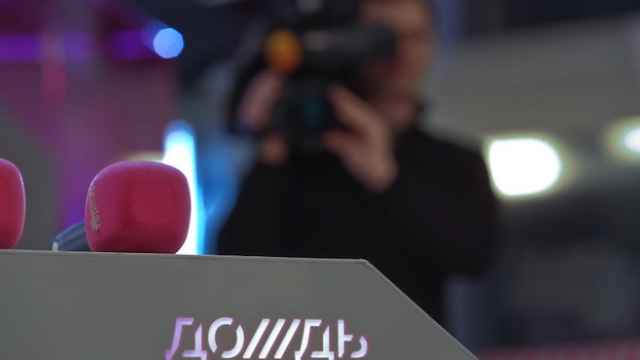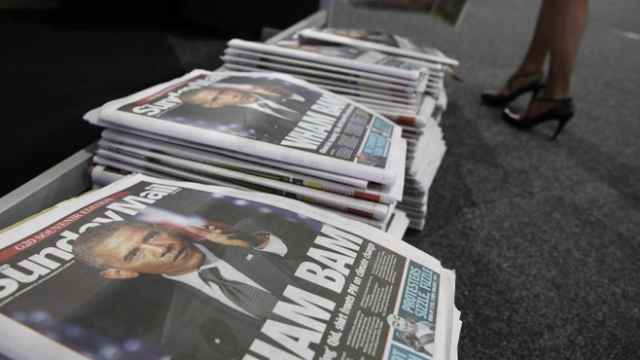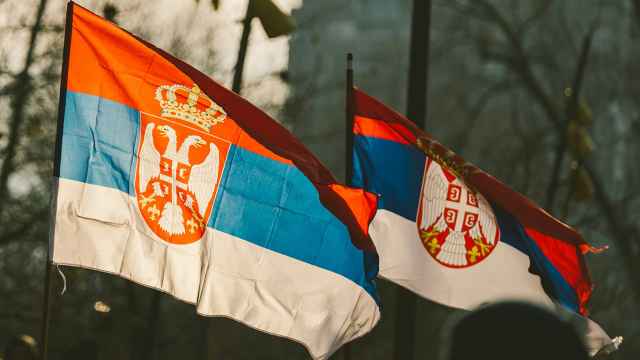Russia's state-owned Channel One, often accused of "propaganda warfare," conceded that one of its most hair-raising reports about Ukraine could have been a "sick fantasy."
In July, Russia's most-watched channel reported that the Ukrainian army had crucified a 3-year-old boy in Slovyansk, after the city was recaptured from pro-Russian insurgents.
The story was told on camera by a woman claiming to have been a refugee from Slovyansk, who demonstrated a suspiciously insecure grasp on the city's layout.
The woman's identity was never verified, and no independent proof is available for the story, which — as skeptics pointed out — eerily echoed a scene from the hit U.S. television series "Game of Thrones."
President Vladimir Putin was asked about the story by journalist Ksenia Sobchak during his press conference last week.
Sobchak described the Channel One report as "hate-mongering" and asked whether it had been orchestrated by the Kremlin — which Putin denied.
Following through, Channel One presenter Irada Zeinalova conceded during a news program on Sunday that the channel had no evidence to back up the story.
But she was unrepentant, accusing the Ukrainian army of committing many other comparable atrocities in Ukraine's war-torn Luhansk and Donetsk regions.
"Life proved to be scarier than sick fantasies — if the tale of the Luhansk refugee was indeed a 'sick fantasy' of a woman whose mind could not take the hell of round-the-clock bombing of Slovyansk," Zeinalova said in a video posted online.
The United Nations estimates that the combined death toll in the two regions is above 4,000, with comparable losses among the Ukrainian army and the insurgents. Independent reports have alleged that both sides of the conflict may have committed war crimes.
A Message from The Moscow Times:
Dear readers,
We are facing unprecedented challenges. Russia's Prosecutor General's Office has designated The Moscow Times as an "undesirable" organization, criminalizing our work and putting our staff at risk of prosecution. This follows our earlier unjust labeling as a "foreign agent."
These actions are direct attempts to silence independent journalism in Russia. The authorities claim our work "discredits the decisions of the Russian leadership." We see things differently: we strive to provide accurate, unbiased reporting on Russia.
We, the journalists of The Moscow Times, refuse to be silenced. But to continue our work, we need your help.
Your support, no matter how small, makes a world of difference. If you can, please support us monthly starting from just $2. It's quick to set up, and every contribution makes a significant impact.
By supporting The Moscow Times, you're defending open, independent journalism in the face of repression. Thank you for standing with us.
Remind me later.






